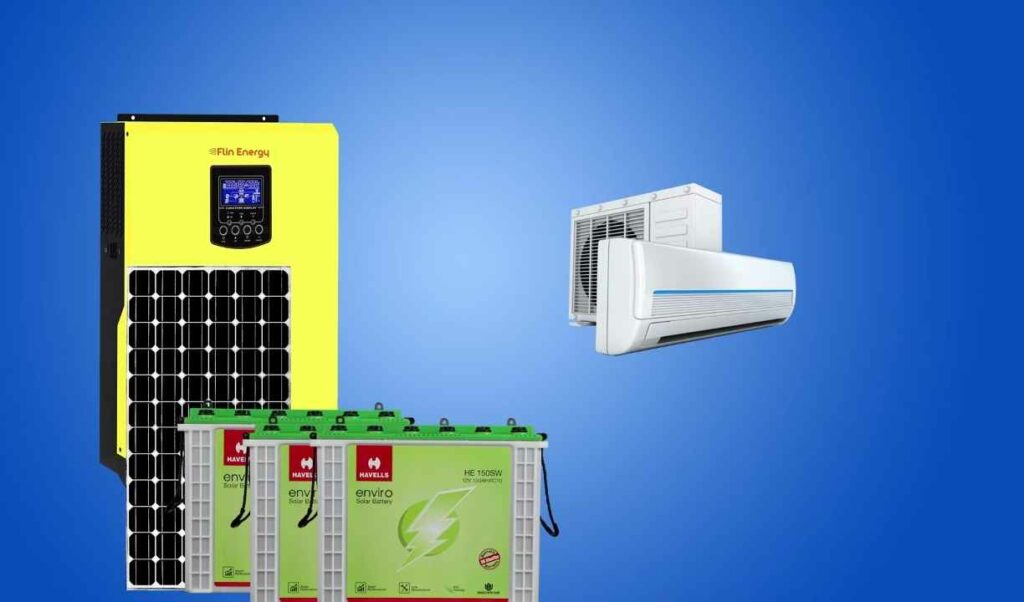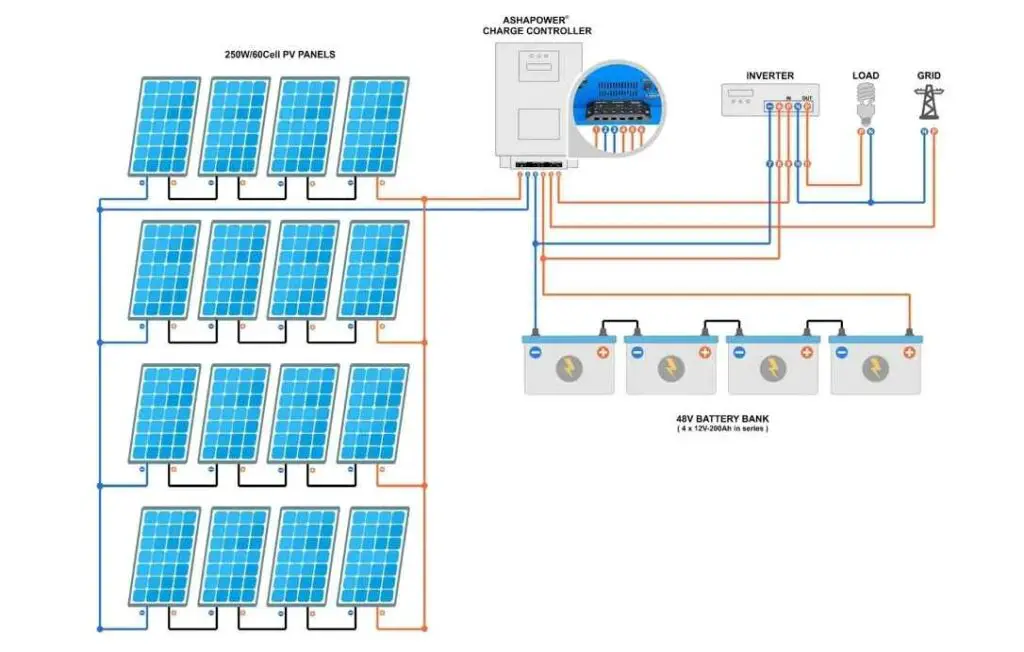The exact number of solar panels required to run a 1.5 hp air conditioner depends on several factors.
The power output, voltage and wattage rating of the solar panel system must be taken into account in order to determine the number of panels necessary for optimal performance.
Generally speaking, it is recommended that a 5kW (5000 Watt) system should be used to power a 1.5 hp air conditioner – this would require approximately 20-25 high-efficiency mono or polycrystalline solar panels with an average wattage of 250 W each.
In addition, other components such as batteries and an inverter will also need to be considered depending on where the AC unit is located.
However, with proper sizing and installation by qualified technicians, your home can enjoy cool comfort while running off renewable energy sources like photovoltaic solar energy!

How Many Solar Panels And Battery Required for 1.5 Ton Ac?
The amount of solar panels and batteries required to power a 1.5-ton air conditioner will depend on the type of AC, how energy-efficient it is, and your local climate.
Generally speaking, you would need at least 5 kilowatts (kW) of solar panels to adequately power a 1.5-ton AC unit.
This would be equivalent to approximately 20-25 solar panels depending on their efficiency ratings which can range from 250 watts per panel up to 330 watts per panel.
In addition, you’ll need a battery bank with enough capacity to store the energy produced by the solar system for nighttime use – this could be anywhere between 10 kWh and 50 kWh depending on your usage patterns.
Of course, if you’re looking for an even more efficient solution then investing in an inverter capable of converting DC electricity into usable AC power can help reduce some of these requirements as well as offer other benefits such as backup capability during grid outages or reduced utility bills due to net metering programs available in many states across the country.

How Many Solar Panels Do I Need to Run an AC Unit?
The answer to this question depends on several factors such as the size and efficiency of your AC unit, how much electricity it uses, and the local climate.
Generally speaking, a 1.5-ton (18,000 BTU) central air conditioner will require around 16 to 20 solar panels for full operation.
However, if you want to run an AC unit with just solar power alone then you may need more than 20 panels depending on your location’s sun exposure.
Additionally, if you live in a hot climate then you may need even more solar panels because the higher temperatures increase the demand for cooling.
It’s also important to take into account any energy savings that can be achieved through improved insulation or other energy-efficient upgrades before getting too many extra solar panels installed.
Ultimately, it is best to consult with a professional who can evaluate all of these factors and provide an accurate estimate of how many solar panels are needed for your specific situation.
How Many Solar Panels to Run 1 HP Air Conditioner
To run a 1 HP air conditioner, you will need to install around 8-10 solar panels.
The exact number of solar panels required depends on the type and size of the solar panel, as well as other factors such as climate conditions and system efficiency.
By investing in additional energy-efficient equipment or installing more powerful solar panels, you can reduce your overall power consumption needs and thus lower the number of panels needed for operation.
How Many ACs Can Run in a 3Kw Solar System?
A 3kW solar system can typically generate between 10-13 amps of current at any given time, depending on the size and efficiency of your solar array.
This is enough to power several air conditioners with a combined total wattage of up to 3600 watts.
However, it’s important to remember that the amount of energy generated by a 3kW system will vary based on weather conditions and other factors, so you should always take this into consideration when deciding how many ACs you plan to run off the system.